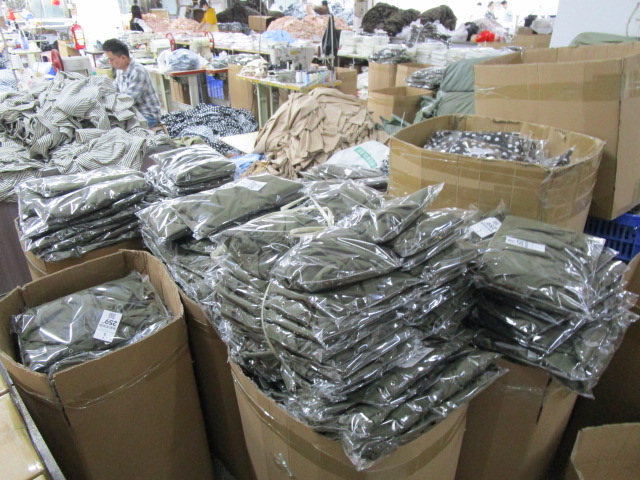In the rapidly evolving landscape of global manufacturing and supply chain management, the significance of conducting thorough and regular manufacturing audits cannot be overstated. These audits serve as a critical tool for purchasers to assess the operational efficiency, quality control systems, compliance with regulatory standards, and overall performance of their suppliers. Implementing manufacturing audits, especially before placing orders with new suppliers and annually for long-term, stable suppliers, is a strategic approach that ensures the resilience and integrity of the supply chain. This article explores the essence of manufacturing audits and the multifaceted benefits they offer to purchasers.
Contents
The Essence of Manufacturing Audits
Manufacturing audits are comprehensive evaluations that scrutinize a supplier’s manufacturing processes, quality assurance mechanisms, compliance with industry standards, and environmental and social responsibilities. They are designed to verify that a supplier’s operational practices align with the purchasing company’s expectations, legal requirements, and ethical standards. By conducting these audits, companies can gain deep insights into the capabilities and reliability of their suppliers, thereby making informed decisions about engaging with them.
Suggested Audit Frequency
It is advisable to perform manufacturing audits before placing orders with new suppliers to establish a baseline understanding of their operational capabilities and compliance levels. For long-term, stable suppliers, annual audits are recommended to ensure ongoing compliance and to identify areas for continuous improvement. This regular scrutiny not only maintains quality and compliance but also reinforces the supplier’s commitment to meeting the purchaser’s standards.
Benefits of Conducting Manufacturing Audits
Enhanced Quality Control
Manufacturing audits allow purchasers to closely examine the quality control measures employed by suppliers. By identifying potential issues in the production process, companies can proactively address them, preventing costly defects and ensuring that the final products meet the required quality standards. This leads to higher customer satisfaction and reduces the risk of recalls and reputational damage.
Supply Chain Transparency
Through manufacturing audits, companies gain visibility into the complexities of their supply chain, including the sourcing of raw materials, labor practices, and production methods. This transparency is crucial for identifying risks, ensuring ethical practices, and complying with regulatory requirements, particularly in industries subject to stringent environmental and social governance standards.
Risk Management
Manufacturing audits play a pivotal role in risk management by uncovering potential vulnerabilities within the supply chain. Whether it’s operational inefficiencies, compliance issues, or financial instabilities, audits provide an early warning system that enables companies to mitigate risks before they escalate into major crises.
Strengthened Supplier Relationships
Regular audits signal to suppliers that the purchasing company is committed to maintaining high standards of quality and compliance. This can foster a culture of continuous improvement and collaboration, strengthening the relationship between the purchaser and the supplier. Over time, this partnership approach can lead to more innovative solutions, better quality products, and more competitive pricing.
Competitive Advantage
Companies that rigorously enforce manufacturing audits are better positioned to guarantee the quality and compliance of their products, giving them a competitive edge in the market. Consumers and clients are increasingly conscious of ethical and environmental issues, and demonstrating a commitment to responsible sourcing can enhance brand reputation and loyalty.
Improved Efficiency and Cost Savings
By identifying inefficiencies and waste in the manufacturing process, audits can lead to significant cost savings for both the purchaser and the supplier. Streamlining production processes and reducing waste contributes to leaner operations, lower costs, and higher profitability.
Implementing Effective Manufacturing Audits
To reap the benefits of manufacturing audits, companies should follow a structured approach, including:
- Pre-audit Preparation: This involves defining the scope and objectives of the audit, reviewing relevant documentation, and communicating expectations with the supplier.
- On-site Evaluation: Auditors should conduct a comprehensive assessment of the manufacturing facilities, processes, and quality control systems. Interviews with management and staff, as well as physical inspections, are crucial components of this phase.
- Reporting and Follow-up: The audit findings should be compiled into a detailed report, highlighting areas of non-compliance and recommending improvements. It’s essential to work closely with the supplier to develop a corrective action plan and schedule follow-up audits to ensure compliance.
Conclusion
Manufacturing audits are an indispensable part of modern supply chain management, offering a spectrum of benefits from enhanced quality control and risk management to improved efficiency and competitive advantage. By implementing regular audits, especially for new and long-term suppliers, companies can ensure the integrity, transparency, and resilience of their supply chains. In an era where consumers demand ethical and sustainable business practices, manufacturing audits are not just a regulatory requirement but a strategic imperative for businesses aiming to thrive in the global marketplace.






